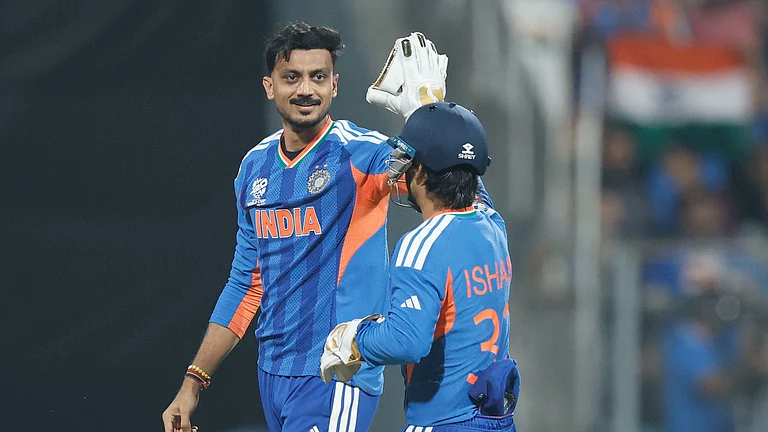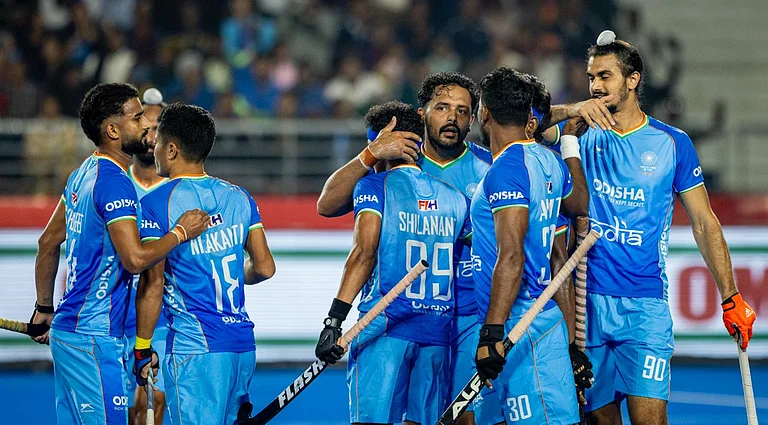While Gujarat assembly election this year is significant for several reasons including emergence of Aam Admi Party (AAP), possibility of Congress taking back power after 27 years of BJP rule and anti-incumbency factors, one must not forget that it also coincides with 20 years of post-Godhra pogrom where at least 1000 Muslims had been killed across the state following the burning of Sabarmati express where 59 'Kar sevaks' coming back from Ayodhya were charred to death.
The pogrom and the subsequent uproar in 2002 however couldn't crate any dent to the BJP's vote bank. Instead, the party under the leadership of the then CM Narendra Modi gained absolute majority with 127 seats in a house of 182. It must also be noted that with a 9.67% population, as per 2011 census, even an allegedly consolidated Muslim vote bank can hardly determine the power politics of the state.
Still, the recent release of the 11 convicts in the Bilkis Bano gangrape case has created some ripples throughout the state leading to the Congress declaring in its manifesto that it will withdraw the remission order if it assumes power. Not only that, BJP's fielding of sitting MLA CK Raulji who said that the convicts were Brahmin men with 'good sanskar' has further stoked the doused fire.
In this context, one cannot help but look at whether the release of Bilkis Bano convicts at all affects the poll results. How does it matter even in Bano's own village?
Is Bilkis Bano an issue in her own Constituency?
Bilkis Bano case lists among a very few that after post-Godhra riots saw the lights of justice. On March 3, 2002, the five-months' pregnant Bilkis Bano was gangraped and her 3-year-old daughter was killed in front of her eyes along with 14 other family members near Ahmedabad. In a long-drawn court battle, a Mumbai court in 2008 convicted 11 people for the heinous crime and sentenced them to life imprisonment.
This year on the occasion of Independence Day all of the convicts were released on the ground of ‘good behaviour’ and where garlanded by their supporters. Bilkis, a resident of Randhikpur village of Adivasi-dominated Dahod district, was neither consulted nor informed about the remission. Several activists have already appealed to the SC for revoking the remission and the case is now sub-judice.
Bilkis Bano’s village comes within Limkheda assembly constituency that is currently ruled by the BJP. According to PTI reports a few activists think that the Congress’s decision to put the promise of revoking remission in the manifesto will help them gain consolidated Muslim votes in the state. Kareem Siddiqui, a known social activist and a strong voice against the remission told the news agency that both Dahod and Panchamahal district have formidable Muslim populations that will stand by Congress instead of fractioning their votes into AAP and Owaisi’s AIMIM.
However, as per 2011 census, the Muslim population in Dahod district is 8.16% below even the state average.
Pointing out that the Hindus don’t see it as a woman issue, Siddiqui said, “The way Jignesh Mevani had raised this issue, even in the presence of Rahul Gandhi, a sentiment was built among Muslims that someone had at least raised their concern. However, Hindus see this from a communal angle. Had they considered it an issue of violence on women, the Bilkis Bano case and subsequent remission of the convicts would have become a huge issue.”
According to him, earlier Muslims were even considering voting for AAP or AIMIM but the recent move of Congress to bring the thing up in manifesto have changed the situation on the ground.
The statements of Siddiqui nevertheless presumes a consolidated Muslim vote bank that has been outrightly rejected by several political scientists. Hilal Ahmed, an Associate Professor of Centre For The Study of Developing Society (CSDS) has categorically opposed such views and said that the Muslim votes are as heterogenous as any other community. There is hardly any evidence to show that Muslims vote en bloc. So, the perception of Siddiqui someway or others counter the evidence and researches in hand.
Bilkis Bano not a poll plank: Congress
However, in contrast to what the activists say, the Congress is of the opinion that this is all about giving justice to marginalised communities and nothing to do with the vote bank.
The Congress working president and a fierce Dalit activist Jignesh Mevani told PTI, “Can't say with confidence that this case will get us votes. And, for us, this issue is all about giving justice to someone, not about reaping political gains during polls. It is a reality that if something happens to the members of a community, you will not see the entire Gujarat coming on roads demanding justice for the victim.”
He further clarified that the promise to revoke the remissions indicate their support to Dalits and Muslims and it should not be read otherwise.
Bilkis Bano- a non-issue for BJP
While the Congress says that it hardly expects any ballot-returns from this promise, BJP thinks it is no more an issue.
BJP MLA Babubhai Soniyabhai Bhabor of Limkheda who has been winning this seat since 2002 barring 2007 elections told PTI, “This is not at all an issue in this election. People are living peacefully and even Muslims of this area are in support of the BJP and it’s wrong to predict the Bilkis Bano case will help the Congress through consolidation of Muslim votes.”
Notably, in 2002 after the pogrom, Bhabor, polled 47.04% votes that soared up to 53.01% in 2017 elections. These results further clarify the reason for his confidence.
BJP plays upfront: Nothing to fear of Godhra
If in Limkheda, BJP MLA exudes confidence, at the state level the party has come out upfront with its Hindutva plank.
Without thinking of ‘what will people say’, BJP has fielded its six-term MLA C K Raulji from Godhra constituency. Raulji recently came to prominence after the release of Bilkis Bano convicts.
In an interview to NDTV, the MLA said, “I don’t know whether they committed the crime or not..” but “Their conduct in jail was good, they were Brahmins...men with good sanskaar [values].” These comments immediately courted controversy and took the social media to storms.
Searching for the ‘good behaviour’ of the convicts, NDTV found that several of them had been on parole during their prison term and while being out a few of them even tried to molest women. The cases had also been filed against them.
Fielding Raulji, BJP has made it clear that for them Muslim votes and the sentiments of the secular liberal forces who have opposed the comment inside out, hardly matters.
BJP Fields Daughter of Post-Godhra Riot Convict
BJP has chosen to field Payal Kularni from Naroda seat. Payal, 30, one of the youngest candidates in the state is daughter of Manoj Kulkarni, a convict in Narod Patiya riot case in which 97 Muslims were brutally killed on February 28, 2002, a day after the unfortunate incident of Godhra.
In August 2012, a special SIT court held 32 guilty among 61 accused. However, in 2018, the High Court convicted 16 people and sentenced them to life imprisonment. Manoj Kulkarni, father of BJP candidate Payal, was among those convicts. Kulkarni is serving a life in jail but is currently out on bail.
Naroda assembly seat has been a pet seat of BJP since 1990. Former minister and another convict-turn-acquitted of Narod Patiya case Maya Kodani won the seat in 1998, 2002 and 2007. Kodani was earlier held guilty, but got acquitted by the High Court in 2018.
Payal whose mother is currently a BJP corporator has said that her parents have been associated with BJP for long.



























